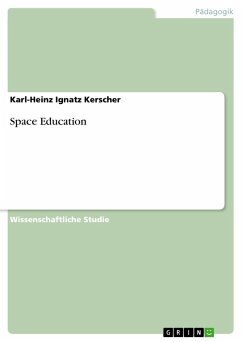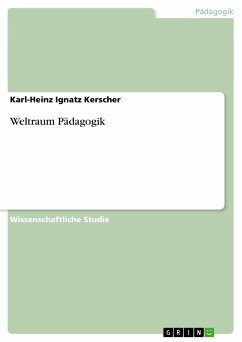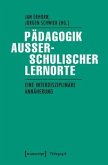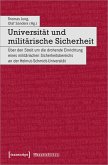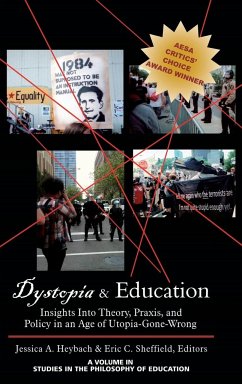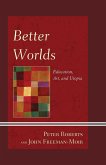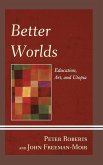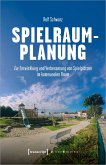Wissenschaftliche Studie aus dem Jahr 2014 im Fachbereich Pädagogik - Sonstiges, , Sprache: Deutsch, Abstract: "Homo Spaciens" comes from the Latin words homo, in the sense of "human being", and spatium "space" which combined form the meaning of "human being originated in space". Homo Spaciens is a forthcoming species of the genus Homo, being evolved from Homo Sapiens, born from the cradle of Earth to live in outer space and spread to inhabit other planets. The Russian scientist Konstantin TSIOLKOVSKY (1857-1935), considered as the father of cosmonautics and human space flight, already envisioned a forthcoming new species of man, who would explore the entire solar system and then would expand into the depth of the cosmos to create cosmic civilizations. He believed that human exploration of space was inevitable and would enhance human evolution. Almost every author in the field of space exploration today cites him as a primary influence. TSIOLKOVSKY clearly understood that the primary issue in the future of space exploration was one of human evolution, and he saw it so early. Today, it is becoming increasingly clear to us that the universe is an infinite environment, the exploration of which will almost inevitably generate fundamental changes in human beings. Perhaps, Homo Sapiens may well evolve into a new species, Homo Spaciens, which will be more suited to life on the outer space than on Earth.The benefit from the integration of Outer Space Affairs in the classroom is specifically assessed. The impact of this on employment, participation, benefits, memory, learning progress, motivation and student behavior are clearly determined. In the higher classes, the effect of space-related issues at the choice of physics as a learning and study is systematically to investigate. In future the effect assessment for the space-related issues and also to the mapping of science, technology, engineering and mathematics have to be applied. Teachers is to offer the use of the space-related issues on the teaching and on the education. This applies to the objectives of the international science and innovation programs and the treatment of Space Issues in science, technology, engineering and mathematics and in addition, in adventure and environmental projects. According to Maria MONTESSORI Cosmic Education introduces the possibility that humanity might have a "cosmic" task.
Hinweis: Dieser Artikel kann nur an eine deutsche Lieferadresse ausgeliefert werden.
Hinweis: Dieser Artikel kann nur an eine deutsche Lieferadresse ausgeliefert werden.

